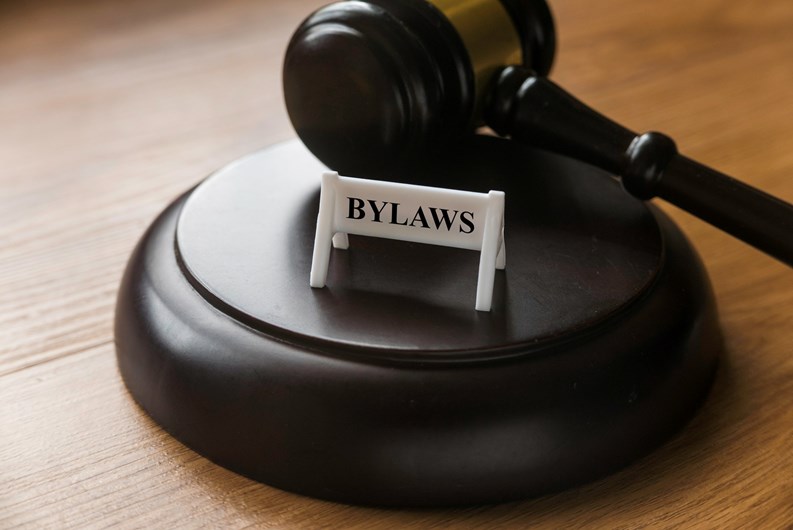Co-op and condo living is subject to lots of rules—some of which come directly from state laws, some from the building or association’s own bylaws, and some from its house rules. Every state has statutes that govern the operation of residential communities; every community also has its own set of governing documents, which are almost universally subject to those state laws—and sometimes go even further than state regulations in delineating what owners and shareholders can and can’t do on the property.
These various laws, bylaws, and rules govern everything from pet ownership to leasing and subletting of individual units, and even to who may reside in an apartment. But can a community’s rules conflict with state statutes? And what happens if they do?
Governing Documents
“As a rule, the law wins; the bylaws lose,” says Richard Brooks, a partner with Marcus, Errico, Emmer, & Brooks, a law firm located in Braintree, Massachusetts. “You can’t make your own rules [that] stand in opposition to state laws. It’s like states’ laws versus federal laws; the federal statute rules. There’s a pecking order.”
“Many condos have provisions about pets or pot smoking in your unit,” explains Brooks. “They are in the bylaws passed by the community. But you have other laws, like federal laws that say you can only smoke marijuana for medical purposes. That has to be permitted, despite the bylaw prohibition. The same concept governs emotional support animals. Federal and state laws say you must permit them, even if you have a no-pet policy.”
According to Dennis Greenstein, a partner with Seyfarth Shaw, a national law firm with offices in Boston, “The governing documents of cooperative corporations—which are their certificates of incorporation, bylaws, proprietary leases, and house rules—and condominiums—which are their declarations and bylaws, and rules and regulations—must comply with the applicable laws governing them. And unless restricted by laws or the governing documents, they can be more stringent than such laws.
“Federal and state laws always prevail over condominium documents,” concurs Michael Merrill, a partner with the firm of Merrill & McGeary in Boston. “If a condo adopts anything contrary to a federal or state law, it’s just not valid. A very simple example is the Federal Fair Housing Act as it relates to disabilities. In particular, the subject of emotional support animals.” Merrill says that in general, a co-op or condo resident is entitled to an emotional support animal, even if the building or HOA has a no-pet policy. “HUD has issued guidelines for attorneys who represent associations to analyze an application for an emotional support animal.”
When There’s a Conflict
To the extent authorized in a condo or co-op’s bylaws, the board of directors may have the authority to amend certain provisions of the bylaws without member approval. However, any such board-enacted bylaw is subject to repeal by a vote of the members. House rules can be added, amended, or deleted by the board of directors, and such actions do not require the approval of the shareholders. If the board implements a house rule that conflicts with an existing bylaw provision or the law, the board can simply vote to repeal it; nothing more is necessary.
Greenstein advises that “if a rule is not in compliance with applicable laws, or is beyond the authority provided in the bylaws, it may be challenged by the shareholders of the co-op or the unit owners of the condominium. A challenge can be made seeking the court to grant, among other relief, a declaration that the rule is without authority and to enjoin the board from attempting to enforce it, and possibly monetary damages resulting from such board action.”
“A rule is something the board makes up,” says Brooks. “It covers what goes on in common areas. A bylaw in Massachusetts restricts what’s going on within units. Boards don’t govern what goes on inside a unit. It’s your home. What most likely happens is that a board comes up with an illegal rule, they call the lawyer, and the lawyer says no, you can’t do that.”
Under certain situations, explains Merrill, more than a board vote would be needed to amend existing rules. “If there was a rule change to which a board agreed, you’d have to amend the bylaws or master deed to remove the offending clause. That would require a vote of the whole association, not just the board.” Sixty-five to seventy-five percent of the association members — a supermajority — would have to vote to remove the clause, and the change would have to be recorded.
Consulting Your Attorney
“When making changes to rules boards should consult with their attorney if they want to do it right. Usually, they don’t,” says Merrill. “They don’t want to incur attorney fees. If you run the condo as you would a business, you would realize you need professional expertise. Boards will often rely on property managers for advice on legal issues and shouldn’t. They should consult their attorney to avoid problems later.”
Greenstein suggests, “It is advisable to have legal counsel review any proposed changes to the governing documents of a co-op or condo, or the enactment of a new or modified house rule or rule and regulation. There are always new court decisions and the passage of new laws affecting co-ops and condominiums. Accordingly, it is important to have counsel review the board’s proposed changes to protect the board members against possible legal challenges and demands for legal fees and expenses being brought.”
A Case in Point
Greenstein cites a pertinent example: “In order to charge shareholders a transfer or flip tax upon the sale of their apartments, the law requires that such provision be contained in the co-op’s proprietary lease. If such provision is not in the lease, and in order to amend the provisions of a proprietary lease, the consent of shareholders owning at least two thirds — the percentage may vary — of the issued and outstanding shares of the co-op must be obtained. A number of years ago, numerous boards of co-ops that did not have transfer tax provisions in their leases passed board resolutions to enact a transfer fee, but didn’t obtain the consent of the shareholders. The resolutions provided for the tax to be paid by shareholders to the co-op as a condition to their selling and transferring their apartments. The shareholders paid the tax in order to close on the sale of their apartments. What followed was the commencement of numerous legal actions against these co-op boards. The courts determined that these boards failed to obtain the required consent of the shareholders thereby rendering the transfer tax unenforceable and ruled that all shareholders who paid the tax within a certain time period receive a full refund of the money they paid, plus interest.”
Brooks suggests that good governance ties into acting reasonably. “If people are acting reasonably, these situations will work themselves out. If they don’t — and they don’t always — they may run into a problem. The truth is, you really don’t need a lot of rules. You need them for things that might become a problem. You can always adapt them when you need to. But they must be in compliance with federal and state laws that govern the operations of condominium and other residential communities.”
The lesson of the story? Be prudent and follow the law, to the letter. n
A J Sidransky is a staff writer/reporter for New England Condominium, and a published novelist.










Leave a Comment